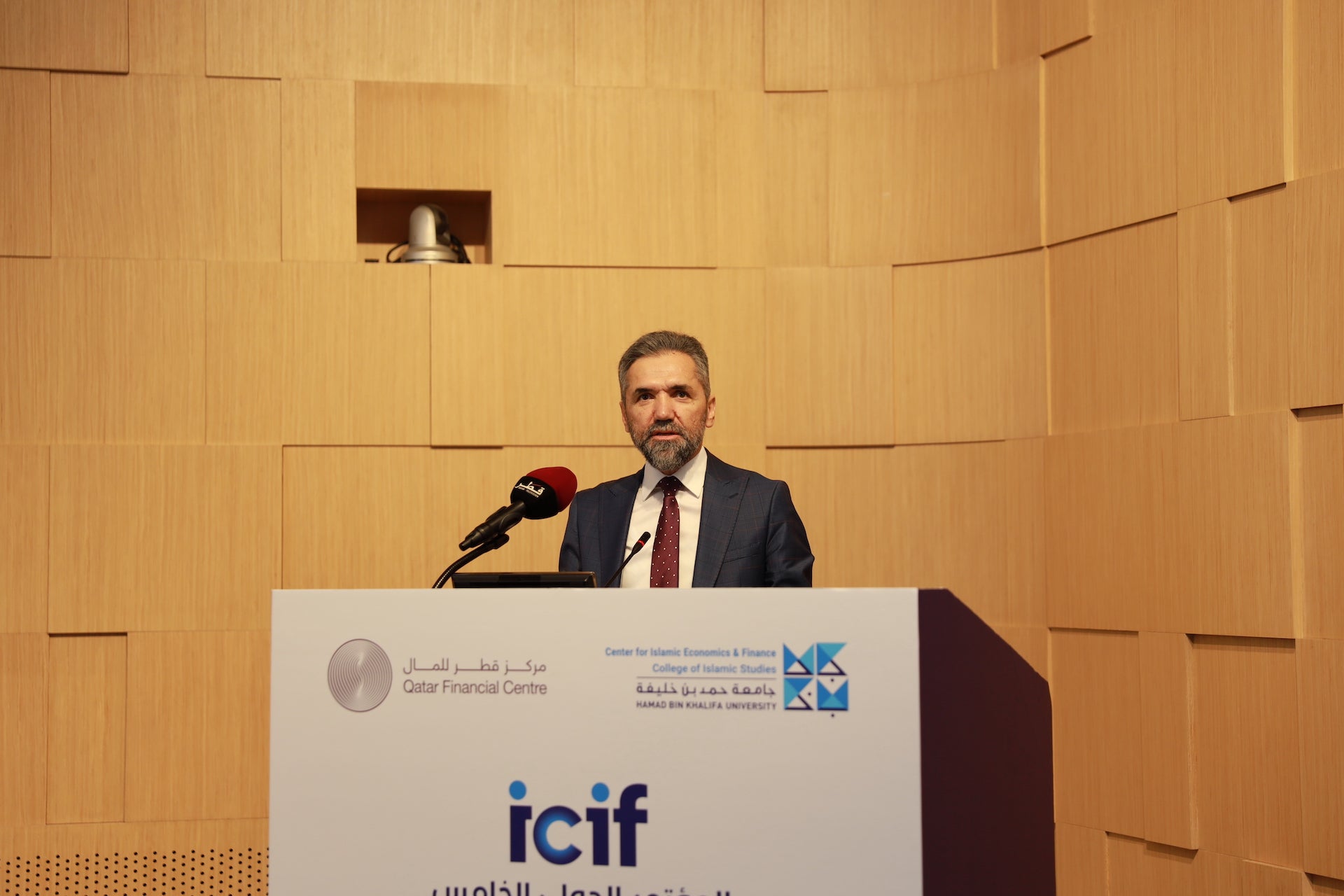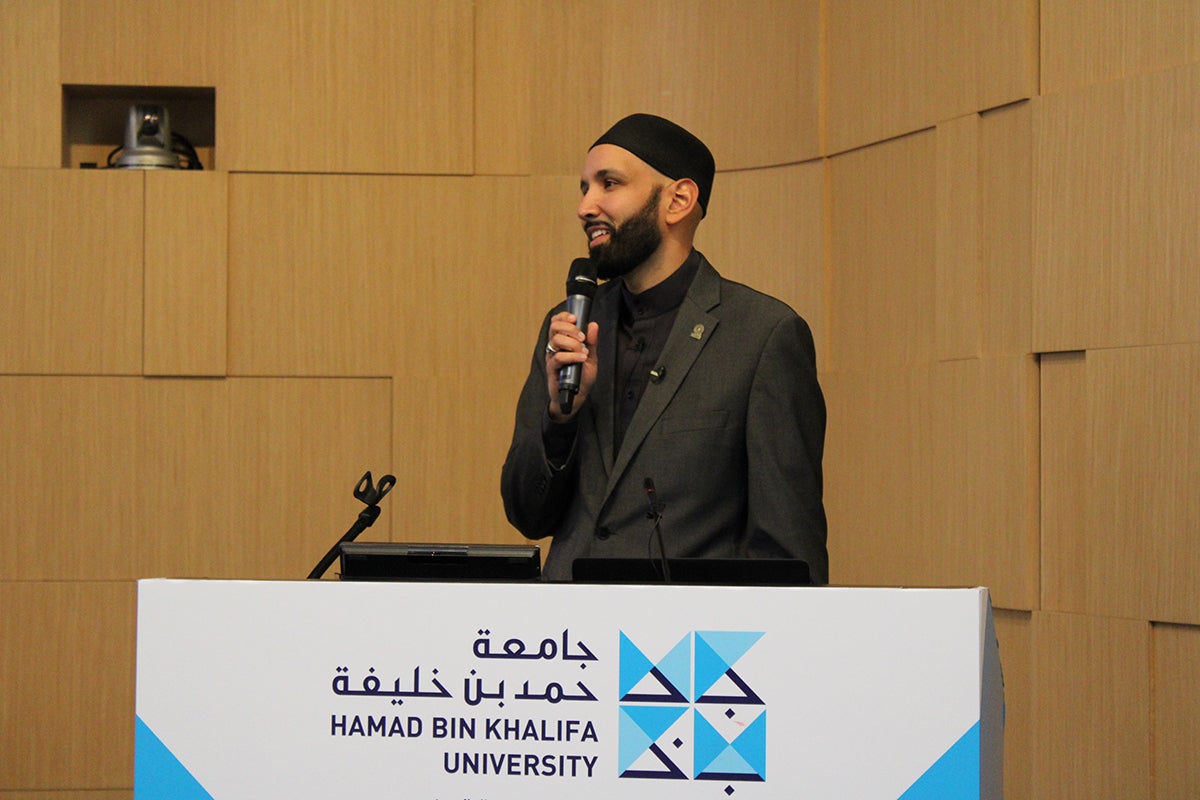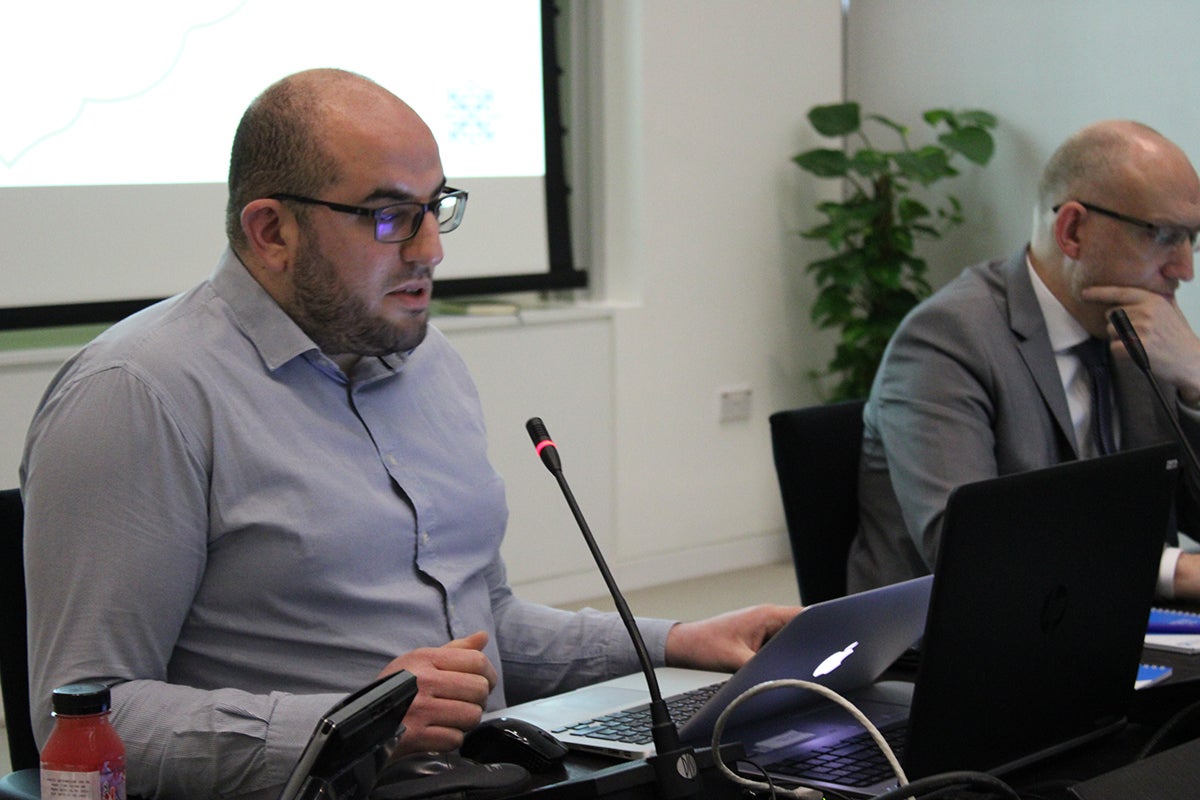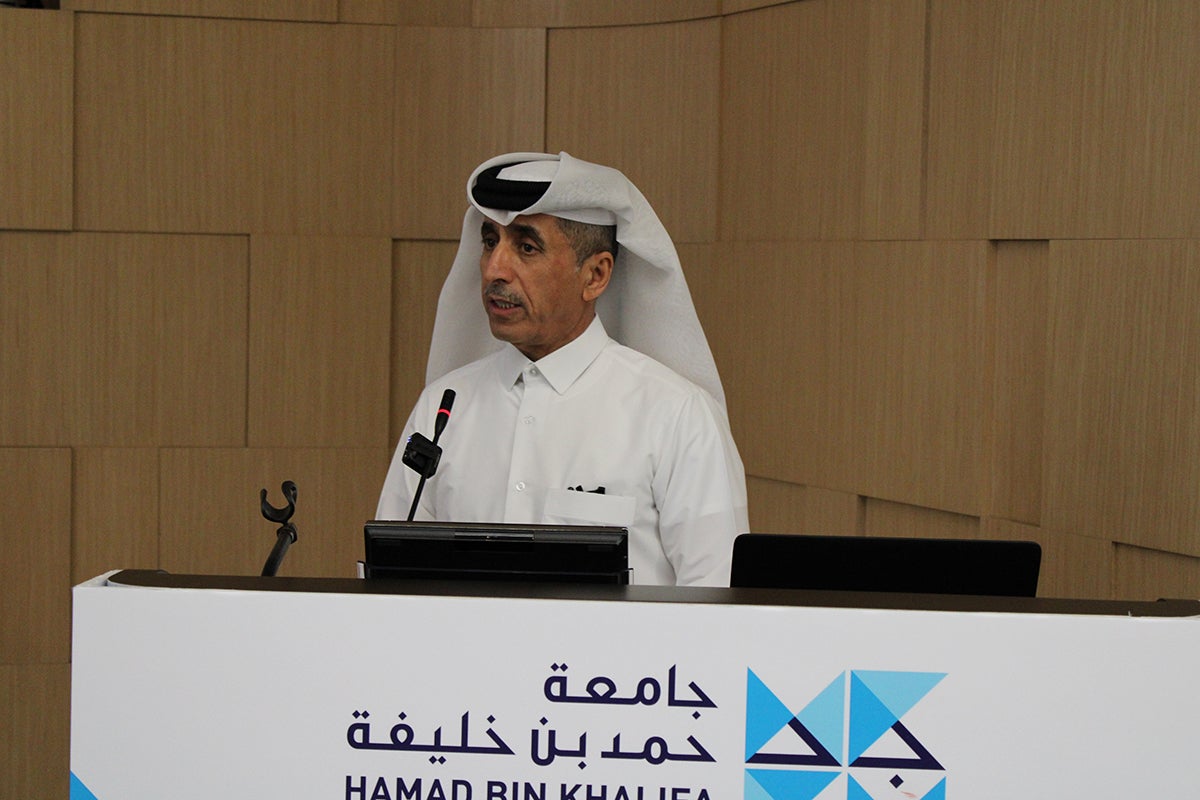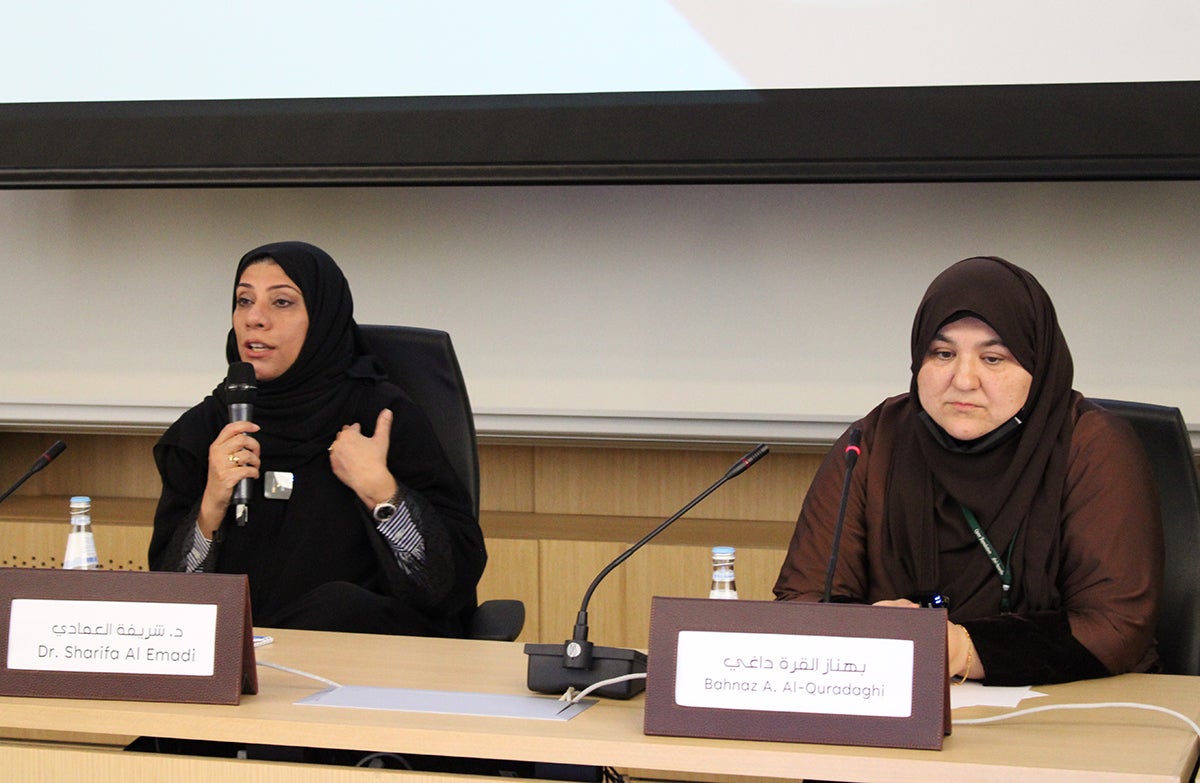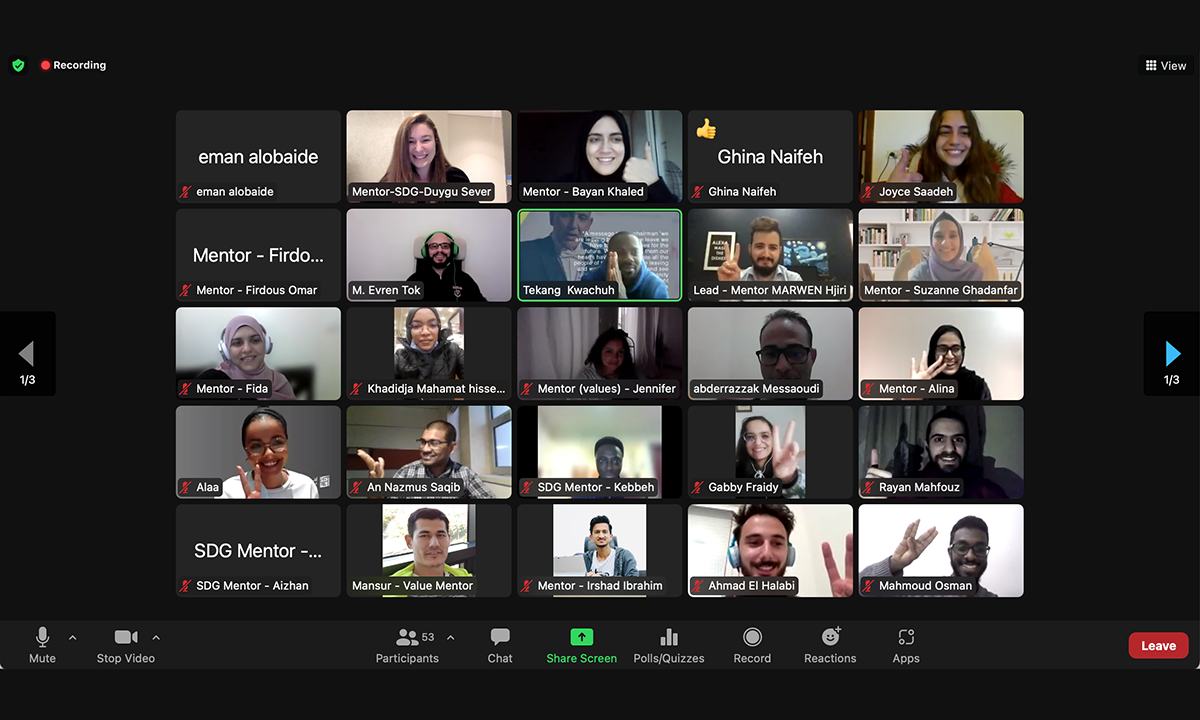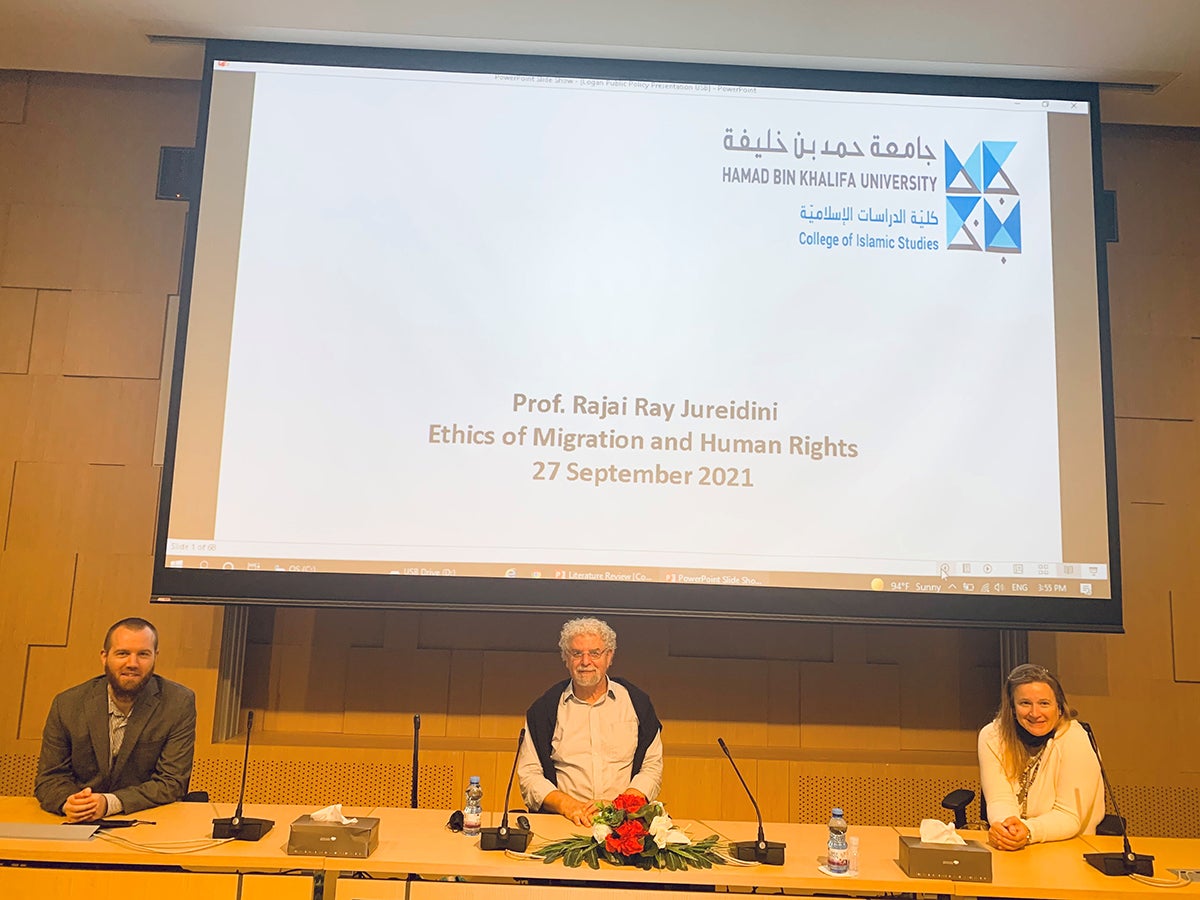
Leadership Qualities of the Imam: Our Prophet as a Role Model
By Sultan bin Ali Al Jaradi*

Contemporary reality of the preaching activity requires a leading Imam who has a sharp mind, pure heart and righteous moves to lead and guide people. Our prophet (PBUH) was really a great role model in all fields including preaching and leadership. He was an insightful Imam, educator and guide to the way of Allah, who acted wisely and provided good advice deriving guidance and insight from His Lord.
The preaching career of our prophet was characterized by notable leadership qualities. He managed to unify people and establish a great nation that had a great resonance all over the world. Leading His nation wisely has resulted in a resounding success, which drove it to gain the benefits of this world and the hereafter. After Allah’s grace and support, this huge success and excellence is attributed to leadership characteristics, in addition to kind traits and manners that qualified Him to be a paradigm and a role model of a successful wise leader who is capable of leading the nation to achieve the goals and objectives that Islam came to establish. Below are the most important leadership characteristics that distinguished our Prophet Muhammad (PBUH):
First: Forgiveness and Tolerance
A leader needs this characteristic to succeed in leading those whom he leads to gain their loyalty. Allah the Almighty says in the Holy Qur’an (So by mercy from Allah, [O Muhammad], You were lenient with them. And if You had been rude [in speech] and harsh in heart, they would have disbanded from about You) (Al Imran: 159). Prophet Muhammad (PBUH) was a tolerant leader who forgave and made excuses for the offenders and pardoned them. His forgiveness encompassed both enemies and friends. It was clearly manifested on the day of the conquest of Mecca when he entered the city as a victorious conqueror. On that day, the polytheists had no refuge or escape. His noble manners and goodness were manifested when he forgave and pardoned them.
Second: Firmness
Despite his tolerance and easiness, He was firm in making some decisions. He was not known for reversing his decisions or being lenient in implementing them when necessary. Examples of his firmness include his order to cut off the hand of a Makhzumi noble woman who had committed theft.
Third: Taking Advice and Consultation
Prophet Muhammad (PBUH) used to consult His companions in important matters and accept the sound opinion and logical reasoning in public affairs that have not been decided over by a revelation from Allah. He was in the habit of doing so to accustom His companions to think about public affairs, to raise their sense of responsibility and to implement the commands of Allah ordering Prophet Muhammad to apply the mutual consultation practices.
Fourth: Reconciling Hearts and Removing Grudges
The successful leader needs this characteristic to unite the ranks and increase intimacy and love between people. Prophet Muhammad (PBUH) was a paradigm and a role model in doing so.
Fifth: Assignment of Tasks and Roles
The successful leader should assign tasks and roles to people according to their energies, inclinations and efficiencies. One of the well-established facts in leadership is that most people do not achieve success without receiving help from others. Prophet Muhammad (PBUH) used to assign tasks and roles to His companions according to their efficiencies and capabilities.
Sixth: Paying Attention to People and Appreciating Them
Prophet Muhammad (PBUH) used to pay attention to his people and appreciate them. He was very compassionate, loving and merciful to his companions. Our prophet used to console them in times of sorrow, visit them to ask about their conditions and teach them good manners and ethics.
Finally: Setting Priorities
Among the leadership qualities required by a leader or an Imam is the skill of setting priorities and giving attention to the most important issues, both wisely and fairly. A true leader should give priority to the public interests compared to private interests by paying attention to preventing mischiefs and favoring this over bringing benefits. This element plays a great role in achieving success, victory, and empowerment.
* Sultan bin Ali Al Jaradi is an MA Student at the College of Islamic Studies (CIS), Hamad Bin Khalifa University (HBKU).
This article is submitted on behalf of the author by the HBKU Communications Directorate. The views expressed are the author’s own and do not necessarily reflect the University’s official stance.
Related News
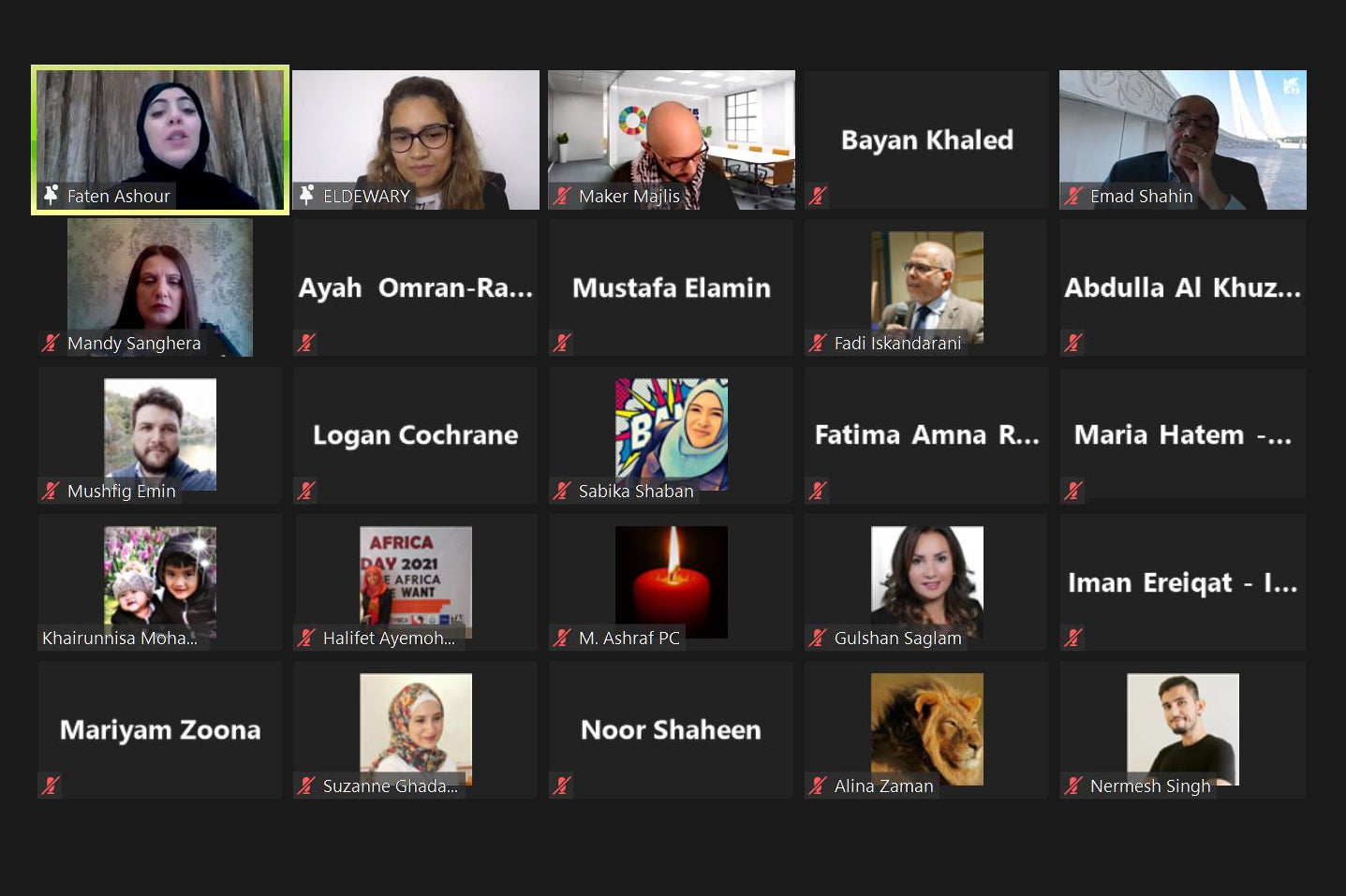
CIS Holds Maker Majlis World Refugee Day Event to Examine Lived Experiences and Advocate for Global Solutions

CIS Launches Project to Develop Uniquely Comprehensive Source on Islamic Reform
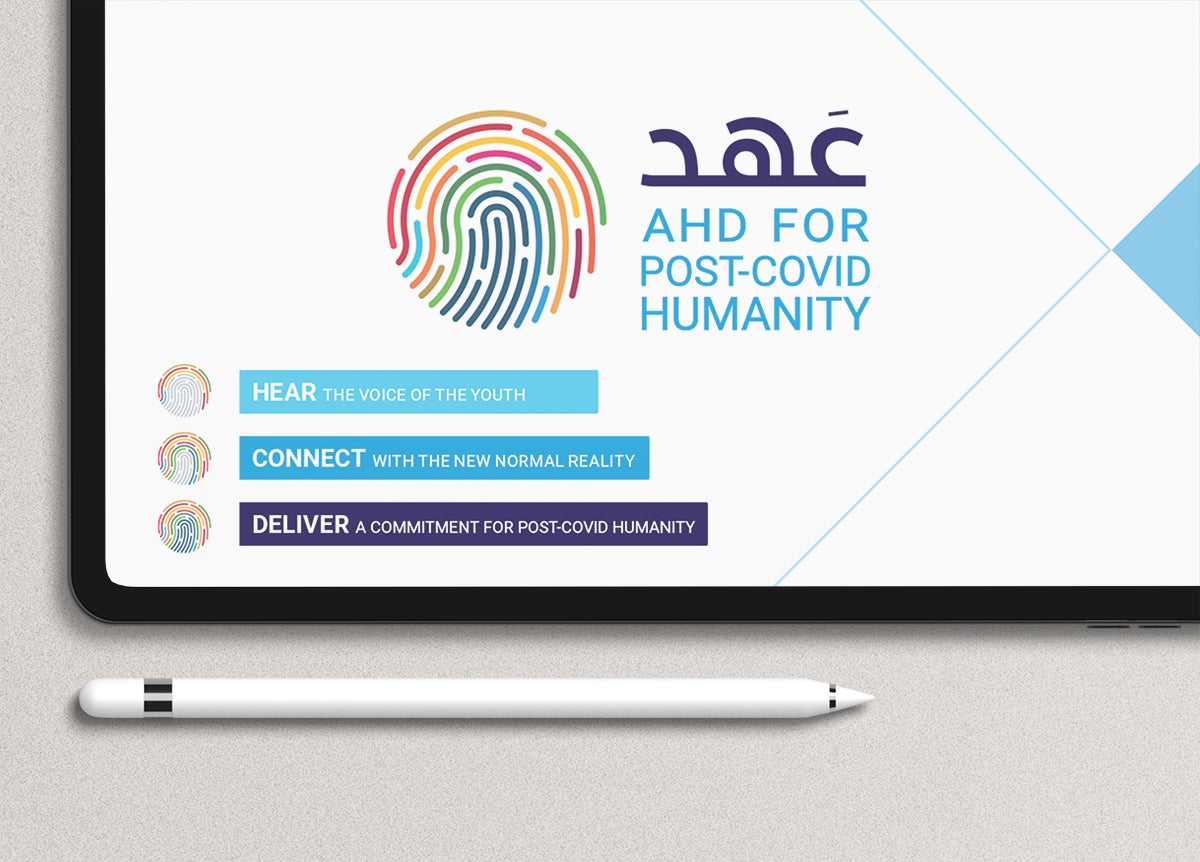
Hamad Bin Khalifa University’s DPCH Initiative Gathers Global Youth to Pledge on Designing a Post-COVID Humanity

Professor at HBKU’s College of Islamic Studies Publishes New Open Access Book on Islam, Globalization, and World History
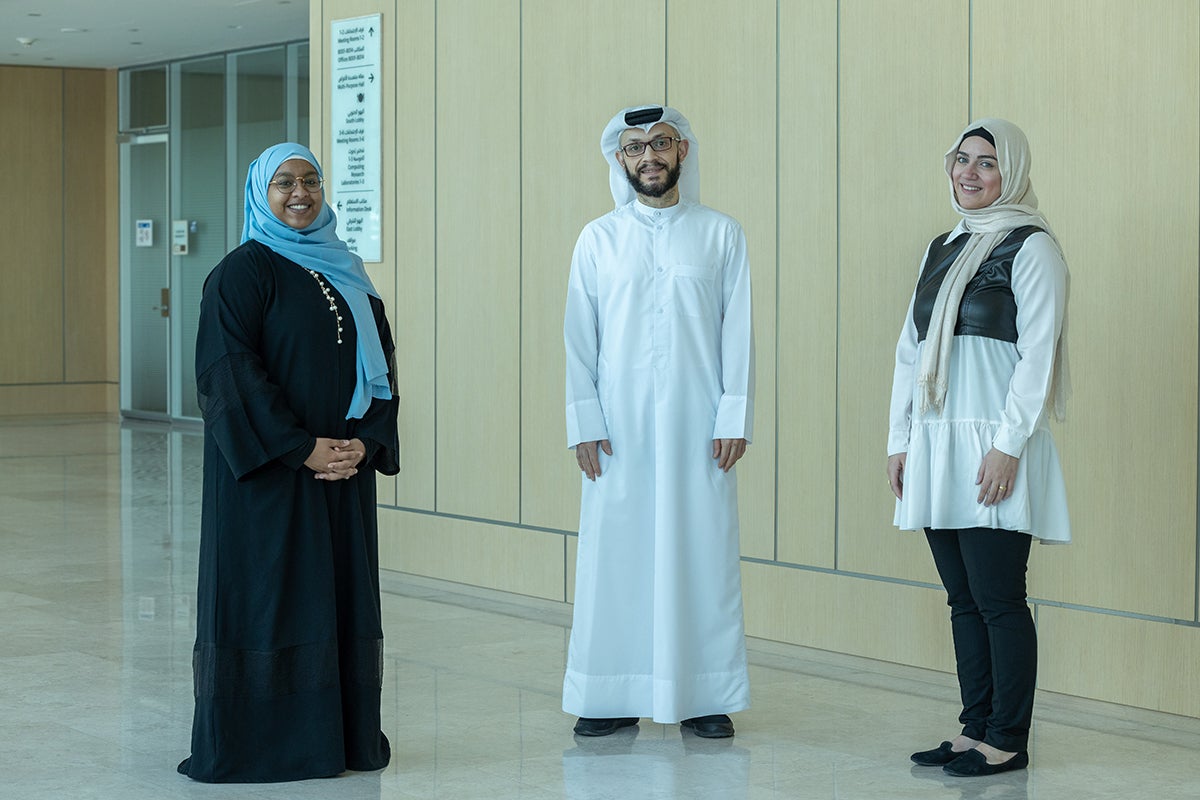
Reframing Youth Engagement and the Science-Faith-Innovation Nexus: The Case of Schifa

CIS Holds Maker Majlis World Refugee Day Event to Examine Lived Experiences and Advocate for Global Solutions

CIS Launches Project to Develop Uniquely Comprehensive Source on Islamic Reform

Hamad Bin Khalifa University’s DPCH Initiative Gathers Global Youth to Pledge on Designing a Post-COVID Humanity

Professor at HBKU’s College of Islamic Studies Publishes New Open Access Book on Islam, Globalization, and World History

Reframing Youth Engagement and the Science-Faith-Innovation Nexus: The Case of Schifa

CIS Holds Maker Majlis World Refugee Day Event to Examine Lived Experiences and Advocate for Global Solutions

CIS Launches Project to Develop Uniquely Comprehensive Source on Islamic Reform

Hamad Bin Khalifa University’s DPCH Initiative Gathers Global Youth to Pledge on Designing a Post-COVID Humanity

Professor at HBKU’s College of Islamic Studies Publishes New Open Access Book on Islam, Globalization, and World History

Reframing Youth Engagement and the Science-Faith-Innovation Nexus: The Case of Schifa

CIS Holds Maker Majlis World Refugee Day Event to Examine Lived Experiences and Advocate for Global Solutions

CIS Launches Project to Develop Uniquely Comprehensive Source on Islamic Reform

Hamad Bin Khalifa University’s DPCH Initiative Gathers Global Youth to Pledge on Designing a Post-COVID Humanity

Professor at HBKU’s College of Islamic Studies Publishes New Open Access Book on Islam, Globalization, and World History

Reframing Youth Engagement and the Science-Faith-Innovation Nexus: The Case of Schifa

CIS Holds Maker Majlis World Refugee Day Event to Examine Lived Experiences and Advocate for Global Solutions

CIS Launches Project to Develop Uniquely Comprehensive Source on Islamic Reform

Hamad Bin Khalifa University’s DPCH Initiative Gathers Global Youth to Pledge on Designing a Post-COVID Humanity

Professor at HBKU’s College of Islamic Studies Publishes New Open Access Book on Islam, Globalization, and World History

Reframing Youth Engagement and the Science-Faith-Innovation Nexus: The Case of Schifa

CIS Holds Maker Majlis World Refugee Day Event to Examine Lived Experiences and Advocate for Global Solutions

CIS Launches Project to Develop Uniquely Comprehensive Source on Islamic Reform

Hamad Bin Khalifa University’s DPCH Initiative Gathers Global Youth to Pledge on Designing a Post-COVID Humanity

Professor at HBKU’s College of Islamic Studies Publishes New Open Access Book on Islam, Globalization, and World History

Reframing Youth Engagement and the Science-Faith-Innovation Nexus: The Case of Schifa

CIS Holds Maker Majlis World Refugee Day Event to Examine Lived Experiences and Advocate for Global Solutions

CIS Launches Project to Develop Uniquely Comprehensive Source on Islamic Reform

Hamad Bin Khalifa University’s DPCH Initiative Gathers Global Youth to Pledge on Designing a Post-COVID Humanity

Professor at HBKU’s College of Islamic Studies Publishes New Open Access Book on Islam, Globalization, and World History

Reframing Youth Engagement and the Science-Faith-Innovation Nexus: The Case of Schifa

CIS Holds Maker Majlis World Refugee Day Event to Examine Lived Experiences and Advocate for Global Solutions

CIS Launches Project to Develop Uniquely Comprehensive Source on Islamic Reform

Hamad Bin Khalifa University’s DPCH Initiative Gathers Global Youth to Pledge on Designing a Post-COVID Humanity

Professor at HBKU’s College of Islamic Studies Publishes New Open Access Book on Islam, Globalization, and World History

Reframing Youth Engagement and the Science-Faith-Innovation Nexus: The Case of Schifa

CIS Holds Maker Majlis World Refugee Day Event to Examine Lived Experiences and Advocate for Global Solutions

CIS Launches Project to Develop Uniquely Comprehensive Source on Islamic Reform

Hamad Bin Khalifa University’s DPCH Initiative Gathers Global Youth to Pledge on Designing a Post-COVID Humanity

Professor at HBKU’s College of Islamic Studies Publishes New Open Access Book on Islam, Globalization, and World History

Reframing Youth Engagement and the Science-Faith-Innovation Nexus: The Case of Schifa

CIS Holds Maker Majlis World Refugee Day Event to Examine Lived Experiences and Advocate for Global Solutions

CIS Launches Project to Develop Uniquely Comprehensive Source on Islamic Reform

Hamad Bin Khalifa University’s DPCH Initiative Gathers Global Youth to Pledge on Designing a Post-COVID Humanity

Professor at HBKU’s College of Islamic Studies Publishes New Open Access Book on Islam, Globalization, and World History

Reframing Youth Engagement and the Science-Faith-Innovation Nexus: The Case of Schifa

CIS Holds Maker Majlis World Refugee Day Event to Examine Lived Experiences and Advocate for Global Solutions

CIS Launches Project to Develop Uniquely Comprehensive Source on Islamic Reform

Hamad Bin Khalifa University’s DPCH Initiative Gathers Global Youth to Pledge on Designing a Post-COVID Humanity

Professor at HBKU’s College of Islamic Studies Publishes New Open Access Book on Islam, Globalization, and World History

Reframing Youth Engagement and the Science-Faith-Innovation Nexus: The Case of Schifa

CIS Holds Maker Majlis World Refugee Day Event to Examine Lived Experiences and Advocate for Global Solutions

CIS Launches Project to Develop Uniquely Comprehensive Source on Islamic Reform

Hamad Bin Khalifa University’s DPCH Initiative Gathers Global Youth to Pledge on Designing a Post-COVID Humanity

Professor at HBKU’s College of Islamic Studies Publishes New Open Access Book on Islam, Globalization, and World History

Reframing Youth Engagement and the Science-Faith-Innovation Nexus: The Case of Schifa

CIS Holds Maker Majlis World Refugee Day Event to Examine Lived Experiences and Advocate for Global Solutions

CIS Launches Project to Develop Uniquely Comprehensive Source on Islamic Reform

Hamad Bin Khalifa University’s DPCH Initiative Gathers Global Youth to Pledge on Designing a Post-COVID Humanity

Professor at HBKU’s College of Islamic Studies Publishes New Open Access Book on Islam, Globalization, and World History

Reframing Youth Engagement and the Science-Faith-Innovation Nexus: The Case of Schifa

CIS Holds Maker Majlis World Refugee Day Event to Examine Lived Experiences and Advocate for Global Solutions

CIS Launches Project to Develop Uniquely Comprehensive Source on Islamic Reform

Hamad Bin Khalifa University’s DPCH Initiative Gathers Global Youth to Pledge on Designing a Post-COVID Humanity

Professor at HBKU’s College of Islamic Studies Publishes New Open Access Book on Islam, Globalization, and World History

Reframing Youth Engagement and the Science-Faith-Innovation Nexus: The Case of Schifa

CIS Holds Maker Majlis World Refugee Day Event to Examine Lived Experiences and Advocate for Global Solutions

CIS Launches Project to Develop Uniquely Comprehensive Source on Islamic Reform

Hamad Bin Khalifa University’s DPCH Initiative Gathers Global Youth to Pledge on Designing a Post-COVID Humanity

Professor at HBKU’s College of Islamic Studies Publishes New Open Access Book on Islam, Globalization, and World History

Reframing Youth Engagement and the Science-Faith-Innovation Nexus: The Case of Schifa

CIS Holds Maker Majlis World Refugee Day Event to Examine Lived Experiences and Advocate for Global Solutions

CIS Launches Project to Develop Uniquely Comprehensive Source on Islamic Reform

Hamad Bin Khalifa University’s DPCH Initiative Gathers Global Youth to Pledge on Designing a Post-COVID Humanity

Professor at HBKU’s College of Islamic Studies Publishes New Open Access Book on Islam, Globalization, and World History

Reframing Youth Engagement and the Science-Faith-Innovation Nexus: The Case of Schifa

CIS Holds Maker Majlis World Refugee Day Event to Examine Lived Experiences and Advocate for Global Solutions

CIS Launches Project to Develop Uniquely Comprehensive Source on Islamic Reform

Hamad Bin Khalifa University’s DPCH Initiative Gathers Global Youth to Pledge on Designing a Post-COVID Humanity

Professor at HBKU’s College of Islamic Studies Publishes New Open Access Book on Islam, Globalization, and World History

Reframing Youth Engagement and the Science-Faith-Innovation Nexus: The Case of Schifa

CIS Holds Maker Majlis World Refugee Day Event to Examine Lived Experiences and Advocate for Global Solutions

CIS Launches Project to Develop Uniquely Comprehensive Source on Islamic Reform

Hamad Bin Khalifa University’s DPCH Initiative Gathers Global Youth to Pledge on Designing a Post-COVID Humanity

Professor at HBKU’s College of Islamic Studies Publishes New Open Access Book on Islam, Globalization, and World History

Reframing Youth Engagement and the Science-Faith-Innovation Nexus: The Case of Schifa

CIS Holds Maker Majlis World Refugee Day Event to Examine Lived Experiences and Advocate for Global Solutions

CIS Launches Project to Develop Uniquely Comprehensive Source on Islamic Reform

Hamad Bin Khalifa University’s DPCH Initiative Gathers Global Youth to Pledge on Designing a Post-COVID Humanity

Professor at HBKU’s College of Islamic Studies Publishes New Open Access Book on Islam, Globalization, and World History

Reframing Youth Engagement and the Science-Faith-Innovation Nexus: The Case of Schifa

CIS Holds Maker Majlis World Refugee Day Event to Examine Lived Experiences and Advocate for Global Solutions

CIS Launches Project to Develop Uniquely Comprehensive Source on Islamic Reform

Hamad Bin Khalifa University’s DPCH Initiative Gathers Global Youth to Pledge on Designing a Post-COVID Humanity

Professor at HBKU’s College of Islamic Studies Publishes New Open Access Book on Islam, Globalization, and World History

Reframing Youth Engagement and the Science-Faith-Innovation Nexus: The Case of Schifa

CIS Holds Maker Majlis World Refugee Day Event to Examine Lived Experiences and Advocate for Global Solutions

CIS Launches Project to Develop Uniquely Comprehensive Source on Islamic Reform

Hamad Bin Khalifa University’s DPCH Initiative Gathers Global Youth to Pledge on Designing a Post-COVID Humanity

Professor at HBKU’s College of Islamic Studies Publishes New Open Access Book on Islam, Globalization, and World History

Reframing Youth Engagement and the Science-Faith-Innovation Nexus: The Case of Schifa

CIS Holds Maker Majlis World Refugee Day Event to Examine Lived Experiences and Advocate for Global Solutions

CIS Launches Project to Develop Uniquely Comprehensive Source on Islamic Reform

Hamad Bin Khalifa University’s DPCH Initiative Gathers Global Youth to Pledge on Designing a Post-COVID Humanity

Professor at HBKU’s College of Islamic Studies Publishes New Open Access Book on Islam, Globalization, and World History

Reframing Youth Engagement and the Science-Faith-Innovation Nexus: The Case of Schifa

CIS Holds Maker Majlis World Refugee Day Event to Examine Lived Experiences and Advocate for Global Solutions

CIS Launches Project to Develop Uniquely Comprehensive Source on Islamic Reform

Hamad Bin Khalifa University’s DPCH Initiative Gathers Global Youth to Pledge on Designing a Post-COVID Humanity

Professor at HBKU’s College of Islamic Studies Publishes New Open Access Book on Islam, Globalization, and World History

Reframing Youth Engagement and the Science-Faith-Innovation Nexus: The Case of Schifa

CIS Holds Maker Majlis World Refugee Day Event to Examine Lived Experiences and Advocate for Global Solutions

CIS Launches Project to Develop Uniquely Comprehensive Source on Islamic Reform

Hamad Bin Khalifa University’s DPCH Initiative Gathers Global Youth to Pledge on Designing a Post-COVID Humanity

Professor at HBKU’s College of Islamic Studies Publishes New Open Access Book on Islam, Globalization, and World History

Reframing Youth Engagement and the Science-Faith-Innovation Nexus: The Case of Schifa

CIS Holds Maker Majlis World Refugee Day Event to Examine Lived Experiences and Advocate for Global Solutions

CIS Launches Project to Develop Uniquely Comprehensive Source on Islamic Reform

Hamad Bin Khalifa University’s DPCH Initiative Gathers Global Youth to Pledge on Designing a Post-COVID Humanity

Professor at HBKU’s College of Islamic Studies Publishes New Open Access Book on Islam, Globalization, and World History

Reframing Youth Engagement and the Science-Faith-Innovation Nexus: The Case of Schifa

CIS Holds Maker Majlis World Refugee Day Event to Examine Lived Experiences and Advocate for Global Solutions

CIS Launches Project to Develop Uniquely Comprehensive Source on Islamic Reform

Hamad Bin Khalifa University’s DPCH Initiative Gathers Global Youth to Pledge on Designing a Post-COVID Humanity

Professor at HBKU’s College of Islamic Studies Publishes New Open Access Book on Islam, Globalization, and World History

Reframing Youth Engagement and the Science-Faith-Innovation Nexus: The Case of Schifa

CIS Holds Maker Majlis World Refugee Day Event to Examine Lived Experiences and Advocate for Global Solutions

CIS Launches Project to Develop Uniquely Comprehensive Source on Islamic Reform

Hamad Bin Khalifa University’s DPCH Initiative Gathers Global Youth to Pledge on Designing a Post-COVID Humanity

Professor at HBKU’s College of Islamic Studies Publishes New Open Access Book on Islam, Globalization, and World History

Reframing Youth Engagement and the Science-Faith-Innovation Nexus: The Case of Schifa

CIS Holds Maker Majlis World Refugee Day Event to Examine Lived Experiences and Advocate for Global Solutions

CIS Launches Project to Develop Uniquely Comprehensive Source on Islamic Reform

Hamad Bin Khalifa University’s DPCH Initiative Gathers Global Youth to Pledge on Designing a Post-COVID Humanity

Professor at HBKU’s College of Islamic Studies Publishes New Open Access Book on Islam, Globalization, and World History

Reframing Youth Engagement and the Science-Faith-Innovation Nexus: The Case of Schifa

CIS Holds Maker Majlis World Refugee Day Event to Examine Lived Experiences and Advocate for Global Solutions

CIS Launches Project to Develop Uniquely Comprehensive Source on Islamic Reform

Hamad Bin Khalifa University’s DPCH Initiative Gathers Global Youth to Pledge on Designing a Post-COVID Humanity

Professor at HBKU’s College of Islamic Studies Publishes New Open Access Book on Islam, Globalization, and World History

Reframing Youth Engagement and the Science-Faith-Innovation Nexus: The Case of Schifa

CIS Holds Maker Majlis World Refugee Day Event to Examine Lived Experiences and Advocate for Global Solutions

CIS Launches Project to Develop Uniquely Comprehensive Source on Islamic Reform

Hamad Bin Khalifa University’s DPCH Initiative Gathers Global Youth to Pledge on Designing a Post-COVID Humanity

Professor at HBKU’s College of Islamic Studies Publishes New Open Access Book on Islam, Globalization, and World History

Reframing Youth Engagement and the Science-Faith-Innovation Nexus: The Case of Schifa

CIS Holds Maker Majlis World Refugee Day Event to Examine Lived Experiences and Advocate for Global Solutions

CIS Launches Project to Develop Uniquely Comprehensive Source on Islamic Reform

Hamad Bin Khalifa University’s DPCH Initiative Gathers Global Youth to Pledge on Designing a Post-COVID Humanity

Professor at HBKU’s College of Islamic Studies Publishes New Open Access Book on Islam, Globalization, and World History

Reframing Youth Engagement and the Science-Faith-Innovation Nexus: The Case of Schifa

CIS Holds Maker Majlis World Refugee Day Event to Examine Lived Experiences and Advocate for Global Solutions

CIS Launches Project to Develop Uniquely Comprehensive Source on Islamic Reform

Hamad Bin Khalifa University’s DPCH Initiative Gathers Global Youth to Pledge on Designing a Post-COVID Humanity

Professor at HBKU’s College of Islamic Studies Publishes New Open Access Book on Islam, Globalization, and World History

Reframing Youth Engagement and the Science-Faith-Innovation Nexus: The Case of Schifa

CIS Holds Maker Majlis World Refugee Day Event to Examine Lived Experiences and Advocate for Global Solutions

CIS Launches Project to Develop Uniquely Comprehensive Source on Islamic Reform

Hamad Bin Khalifa University’s DPCH Initiative Gathers Global Youth to Pledge on Designing a Post-COVID Humanity

Professor at HBKU’s College of Islamic Studies Publishes New Open Access Book on Islam, Globalization, and World History

Reframing Youth Engagement and the Science-Faith-Innovation Nexus: The Case of Schifa

CIS Holds Maker Majlis World Refugee Day Event to Examine Lived Experiences and Advocate for Global Solutions

CIS Launches Project to Develop Uniquely Comprehensive Source on Islamic Reform

Hamad Bin Khalifa University’s DPCH Initiative Gathers Global Youth to Pledge on Designing a Post-COVID Humanity

Professor at HBKU’s College of Islamic Studies Publishes New Open Access Book on Islam, Globalization, and World History

Reframing Youth Engagement and the Science-Faith-Innovation Nexus: The Case of Schifa

CIS Holds Maker Majlis World Refugee Day Event to Examine Lived Experiences and Advocate for Global Solutions

CIS Launches Project to Develop Uniquely Comprehensive Source on Islamic Reform

Hamad Bin Khalifa University’s DPCH Initiative Gathers Global Youth to Pledge on Designing a Post-COVID Humanity

Professor at HBKU’s College of Islamic Studies Publishes New Open Access Book on Islam, Globalization, and World History

Reframing Youth Engagement and the Science-Faith-Innovation Nexus: The Case of Schifa

CIS Holds Maker Majlis World Refugee Day Event to Examine Lived Experiences and Advocate for Global Solutions

CIS Launches Project to Develop Uniquely Comprehensive Source on Islamic Reform

Hamad Bin Khalifa University’s DPCH Initiative Gathers Global Youth to Pledge on Designing a Post-COVID Humanity

Professor at HBKU’s College of Islamic Studies Publishes New Open Access Book on Islam, Globalization, and World History

Reframing Youth Engagement and the Science-Faith-Innovation Nexus: The Case of Schifa

CIS Holds Maker Majlis World Refugee Day Event to Examine Lived Experiences and Advocate for Global Solutions

CIS Launches Project to Develop Uniquely Comprehensive Source on Islamic Reform

Hamad Bin Khalifa University’s DPCH Initiative Gathers Global Youth to Pledge on Designing a Post-COVID Humanity

Professor at HBKU’s College of Islamic Studies Publishes New Open Access Book on Islam, Globalization, and World History

Reframing Youth Engagement and the Science-Faith-Innovation Nexus: The Case of Schifa

CIS Holds Maker Majlis World Refugee Day Event to Examine Lived Experiences and Advocate for Global Solutions

CIS Launches Project to Develop Uniquely Comprehensive Source on Islamic Reform

Hamad Bin Khalifa University’s DPCH Initiative Gathers Global Youth to Pledge on Designing a Post-COVID Humanity

Professor at HBKU’s College of Islamic Studies Publishes New Open Access Book on Islam, Globalization, and World History

Reframing Youth Engagement and the Science-Faith-Innovation Nexus: The Case of Schifa

CIS Holds Maker Majlis World Refugee Day Event to Examine Lived Experiences and Advocate for Global Solutions

CIS Launches Project to Develop Uniquely Comprehensive Source on Islamic Reform

Hamad Bin Khalifa University’s DPCH Initiative Gathers Global Youth to Pledge on Designing a Post-COVID Humanity

Professor at HBKU’s College of Islamic Studies Publishes New Open Access Book on Islam, Globalization, and World History

Reframing Youth Engagement and the Science-Faith-Innovation Nexus: The Case of Schifa

CIS Holds Maker Majlis World Refugee Day Event to Examine Lived Experiences and Advocate for Global Solutions

CIS Launches Project to Develop Uniquely Comprehensive Source on Islamic Reform

Hamad Bin Khalifa University’s DPCH Initiative Gathers Global Youth to Pledge on Designing a Post-COVID Humanity

Professor at HBKU’s College of Islamic Studies Publishes New Open Access Book on Islam, Globalization, and World History

Reframing Youth Engagement and the Science-Faith-Innovation Nexus: The Case of Schifa

CIS Holds Maker Majlis World Refugee Day Event to Examine Lived Experiences and Advocate for Global Solutions

CIS Launches Project to Develop Uniquely Comprehensive Source on Islamic Reform








